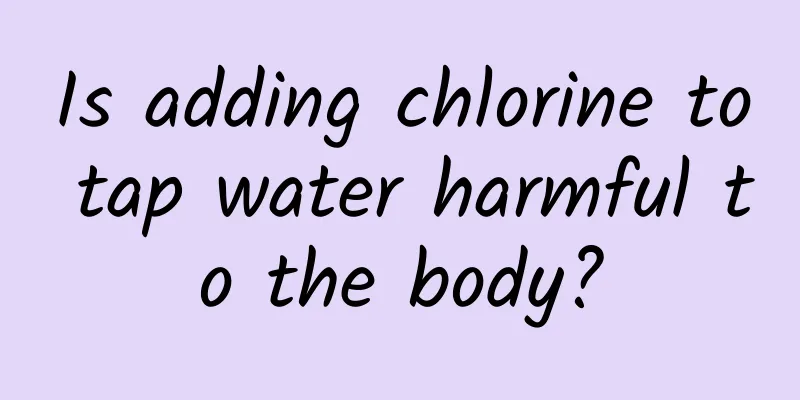Is adding chlorine to tap water harmful to the body?

|
We all know that chlorine is a toxic gas with a strong pungent odor. We also know that tap water is generally disinfected with chlorine. So, why do we need to add chlorine to good tap water? Is it harmful to the body after adding chlorine? It takes a long time and more than ten kilometers of pipelines for tap water to reach residents from the source. In this process, the water source may be polluted. If it is not treated in any way, the water at the end may contain impurities, harmful microorganisms, etc., which will affect the safety of water use. In response to this situation, the current universal solution in the world is to add chlorine. When chlorine gas is soaked into water, it will turn into hypochlorous acid, which kills bacteria and pathogenic microorganisms in the water. The chlorine smell in tap water is not caused by excessive addition of chlorine. The chlorine smell we smell in the tap water comes from the residual chlorine in the water. A certain amount of residual chlorine must be ensured in drinking water. This residual chlorine can achieve the effect of continuous disinfection and ensure the safety of our water use. Is adding chlorine to tap water harmful to the body? First of all, according to the national "Standards for Drinking Water Hygiene", the residual chlorine in tap water leaving the factory is between 0.3-4 mg/L, and the residual chlorine at the end of the pipeline must not be less than 0.05 mg/L, in order to ensure continuous sterilization and disinfection and ensure water quality safety. The residual chlorine in the water leaving the factory of each water plant of Beijing Water Group is controlled between 0.3-0.9 mg/L, and the residual chlorine at the end of the pipeline is greater than or equal to 0.05 mg/L. It is normal for tap water to have a slight chlorine taste and it does not affect health at all. As long as the residual chlorine content is within the national standard range, the tap water is safe and citizens can drink it with confidence. Regulatory authorities will also conduct regular sampling and monitoring to ensure the safety of residents’ drinking water. Secondly, the toxicity of chlorine to the human body is closely related to the dosage. The World Health Organization once gave a non-toxic level of residual chlorine in water as 15 mg/kg per day. In other words, even if you drink dozens of liters of tap water a day, you won't get chlorine poisoning. If you don't like the taste of chlorine or have a grudge against it, you can easily remove the chlorine by heating the tap water (boiling it for 1-2 minutes) without having to let it sit for a while before drinking. Reference sources: Beijing Water Group, 39 Health Network, Beijing Evening News, Zhejiang Disinfection |
<<: The robots have arrived at the International Space Station. How are they doing their job?
>>: The little thing that looks like a skeleton panda finally has a name in 2024
Recommend
6 analysis methods to teach you how to quickly diagnose SEM account performance
Only data can tell whether your promotion account...
Let’s talk about the “unspoken rules” that must be understood and faced in community operations work!
There are three forms of rules: explicit rules, i...
The "North-South Dispute" is here again! Why is the Little New Year's Eve in the South and the North one day different? The answer starts here...
This article was reviewed by Shao Lin, a popular ...
If I have severe snoring, can I undergo surgery?
Clinically, there is an interesting phenomenon re...
The most complete! Summary of mini program channel promotion, saved!
Mini Program is a lightweight product that was no...
Cut the meat! Who did the big companies get rid of in 2015?
[[161006]] At first, it was a popular commodity t...
Why is Spring Festival red envelope marketing so popular?
I have to complain that this year’s Spring Festiv...
3 types of product value make users more willing to buy your product
Many people may think: What value can a product r...
How to do Tik Tok marketing?
During this period, Tik Tok is very popular and e...
Cleverly use leverage to attract 1 million users
How to define seed users ? Three conditions for d...
Looking in the mirror and being narcissistic, maybe people did this 4,000 years ago...
A bronze mirror with a double fish pattern, in th...
Can an individual make money by operating a WeChat mini program?
Q: Can I make money by operating a WeChat mini pr...
How to solve food safety issues at sea?
Listen to the interpretation of "Science Int...
Apple's worst product leak in 14 years! M4 MacBook not released yet, unboxing videos are everywhere
OMG, Apple has had its worst product leak in 14 y...









